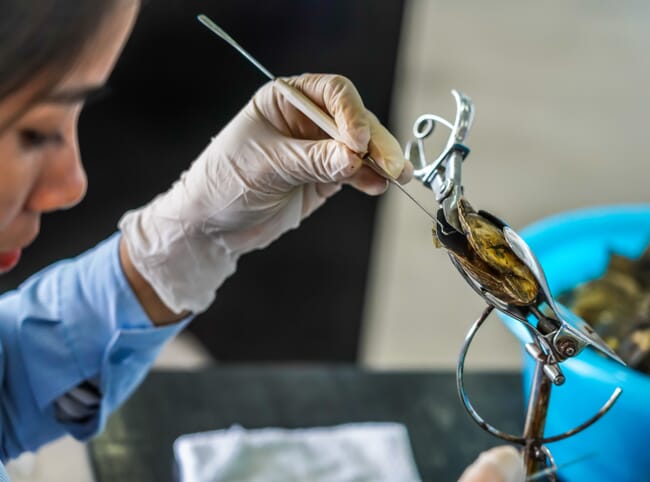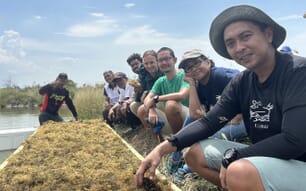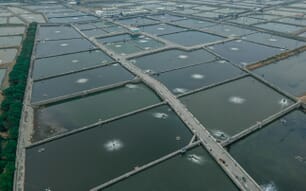The hub aims to improve the breeding programmes of five of the state’s most popular aquaculture species – barramundi, pearl oyster, black tiger prawn, grouper and red algae.
Funded by the federal government, the programme will be run in partnership with James Cook University and will focus on increased growth and disease resistance through the use of genomics.

© Leonard Zhukovsky, Shutterstock.com
Genetic testing, selective breeding and artificial intelligence are also among the areas of research that the hub’s researchers will focus on.
According to Prof Dean Jerry, director of the hub, it will also form a bridge between researchers and the aquaculture industry.
"Like every other food production sector: cattle, crops and poultry, genetics has been the one technology that has allowed us to increase our food efficiency in production and lower the risk of disease," he told the Australian Associated Press (AAP).
"Aquaculture as a new industry and rapidly expanding industry in the north, now is in the position to take advantage of the $5 million cutting-edge technologies," he added.
According to Prof Jerry, skilled labour shortages in northern Queensland have limited the growth of the industry, and it’s hoped the hub will attract trainees and internships with partner organisations.
"The industry is growing so rapidly that farms are having difficulty finding skilled staff," Prof Jerry said.
"By these companies working with us we will have things like internships, embedment of research onto the farms... to try and develop the human capital for the industry moving forward."
Partner organisations will contribute an additional $2.65 million and more than $10 million in support to help achieve the programme's goals, according to the AAP.




